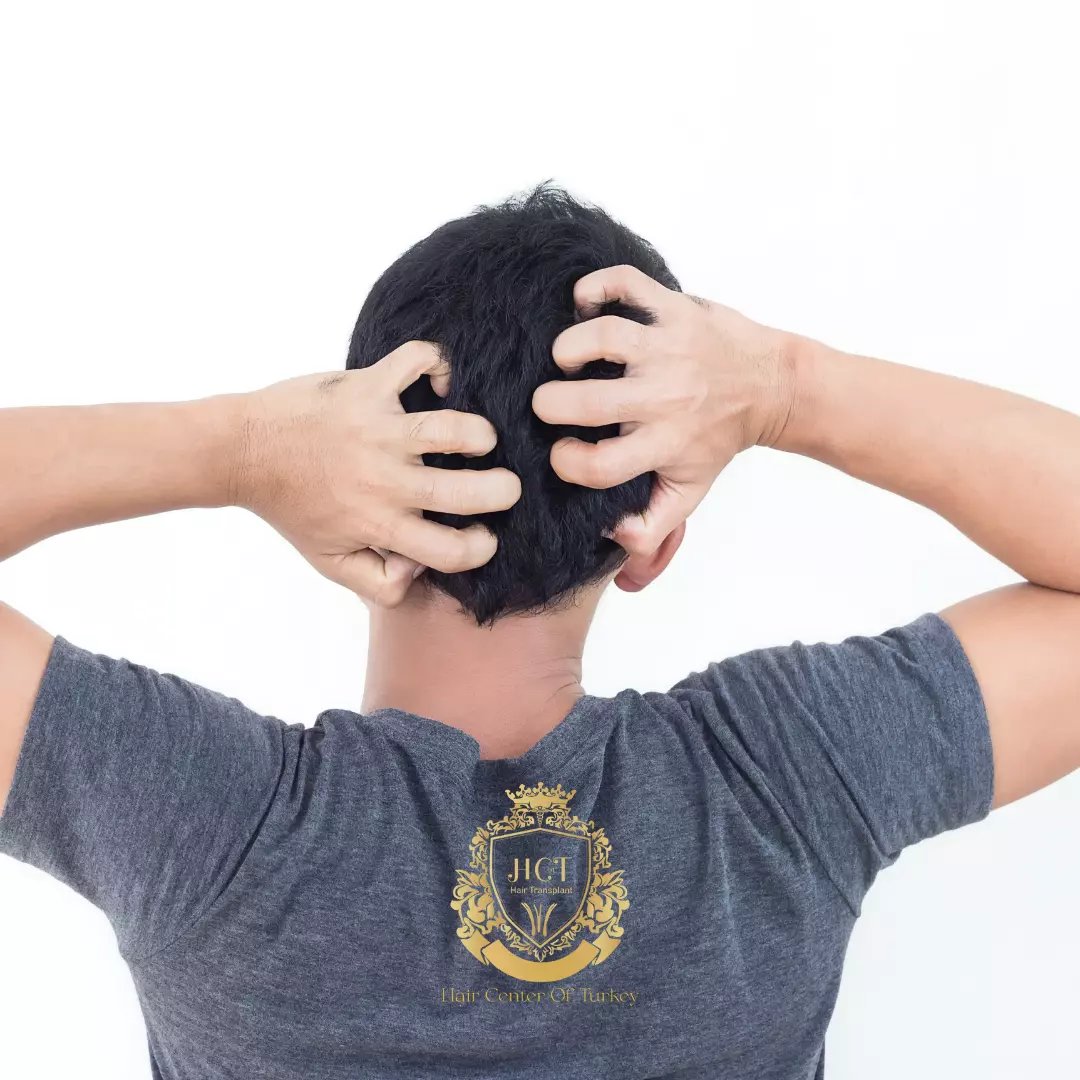
Soothing an Itchy Scalp: What Works?
Most itchy scalps improve when you switch to a gentle, fragrance-free shampoo, wash with lukewarm water, and moisturize the scalp. Flaking with redness can point to dandruff or dermatitis and may need a medicated shampoo. Seek medical care if you have oozing, pain, patchy hair loss, or itch that lasts longer than two weeks.
Table of Contents
Causes Of Scalp Itchiness
An itchy scalp is common and usually linked to dryness, irritation, or a scalp condition such as dandruff. The best fix depends on what else you notice flaking, redness, bumps, or hair loss. These are the most frequent causes.

Dry Scalp
Dryness often shows up as tightness, fine flaking, and itching that gets worse in cold weather or with frequent washing. Hot showers, indoor heating, and harsh detergents can strip protective oils from the scalp.
Hair Products And Chemical Irritation
Fragrances, dyes, preservatives, and strong cleansing agents can irritate the scalp or trigger allergic contact dermatitis. Symptoms may include burning, redness, scaling around the hairline, or itch that starts after switching products.
Dandruff (Seborrheic Dermatitis)
Dandruff tends to cause greasy or white flakes with itching and mild redness. It can flare with stress, seasonal changes, or leaving oily products on the scalp.
Eczema Or Psoriasis
Atopic dermatitis (eczema) can cause dry, itchy patches, while psoriasis often creates thicker, silvery scale and well‑defined plaques. Both can affect the scalp and may need targeted treatment from a clinician.
Infections
Fungal infections can lead to itching, scaling, and sometimes broken hairs or tender areas. Bacterial folliculitis may appear as itchy or painful bumps or pustules.
Head Lice
Heat lice cause intense itching and may be suspected if you see nits (eggs) attached to hair shafts, especially behind the ears and at the nape. Close contacts may also be itchy.
Hair Loss Treatments And Procedures
Treatments such as hair transplantation, microneedling, or topical medications can cause temporary itch as the skin heals. Scratching or picking at scabs can delay healing and increase the risk of infection.
Stress And Anxiety
Stress can worsen many skin conditions and may heighten the sensation of itch. If flares track with stress, addressing sleep and stress habits can support other treatments.
What Helps An Itchy Scalp
Start with gentle care and then match treatment to your symptoms. If you have a known skin condition or you recently had a scalp procedure, follow your clinician’s advice first.
Gentle Daily Care
- Wash with lukewarm water and avoid long, hot showers.
- Use a mild, fragrance‑free shampoo and rinse thoroughly.
- Limit scratching. If you need relief, press the fingertips lightly instead of using nails.
- Try a cool compress for 5–10 minutes when itching spikes.
If You Have Flakes Or “Dandruff”
A medicated anti‑dandruff shampoo used consistently can reduce itching and scale. Common active ingredients include ketoconazole, selenium sulfide, zinc pyrithione, salicylic acid, or coal tar. Follow the label directions and give a product a few weeks before judging results.
If Your Scalp Feels Dry Or Tight
- Cut back on washing frequency if you wash daily.
- Avoid alcohol‑heavy styling products and strong dry shampoos.
- Consider a light, scalp‑safe moisturizer or oil applied sparingly to the skin (not just the hair).
If You Suspect Product Sensitivity
Stop any new products and simplify your routine for 1–2 weeks. Choose fragrance‑free options and avoid hair dyes or chemical treatments until symptoms settle. If rash or swelling occurs, seek medical advice.
After A Hair Transplant Or Scalp Procedure
Mild itching is common during healing, but the scalp is also more vulnerable to irritation. Stick to your aftercare plan and avoid adding new products unless your clinic approves them.
- Do not scratch, pick, or rub scabs. This can disturb grafts and slow healing.
- Use only the cleansers, sprays, and lotions recommended by your medical team.
- Contact your clinic promptly if you notice increasing redness, warmth, swelling, discharge, or fever.
When To See A Doctor
Get medical advice if itching is severe, keeps returning, or does not improve with basic care. Seek prompt care if you notice any of the following.
- Pain, oozing, crusting, or a bad smell from the scalp
- Rapidly spreading redness, swelling, or fever
- Patchy hair loss, broken hairs, or tender swollen lymph nodes
- Persistent itching for more than two weeks despite gentle care
- Signs of lice or a contagious scalp infection in the household
Prevention Tips
- Keep your routine simple and avoid frequent product switching.
- Patch‑test new products when possible, especially dyes and fragranced items.
- Rinse sweat and styling products out promptly after workouts.
- Manage dandruff early with an anti‑dandruff shampoo a few times per week if you are prone to flares.
- Prioritize sleep and stress management if you notice stress‑linked flare‑ups.
FAQ
Why is my scalp unbearably itchy?
Common causes include dandruff, dry skin, eczema/psoriasis, allergies, lice, or fungal infection.
What can you put on your scalp to stop itching?
Use anti-dandruff shampoo, fragrance-free moisturizer, or 1% hydrocortisone; seek care if persistent.
What vitamin is lacking if your scalp itches?
None specifically; vitamin D or B12 deficiency can contribute, but causes are usually skin-related.
How do I stop compulsive itching on my head?
Treat the trigger, keep nails short, moisturize, use gloves, and consider CBT/dermatology evaluation.
What hormone imbalance causes itchy scalp?
Thyroid hormone disorders can cause dry, itchy scalp; other hormonal shifts may worsen dryness.
How often should you wash your hair if you have an itchy scalp?
Wash every 1–2 days with gentle or medicated shampoo, especially if dandruff/oily.
What are 5 signs of vitamin D deficiency to not ignore?
Bone pain, muscle weakness, frequent infections, fatigue, and low mood can signal vitamin D deficiency.




